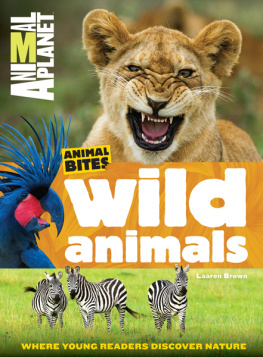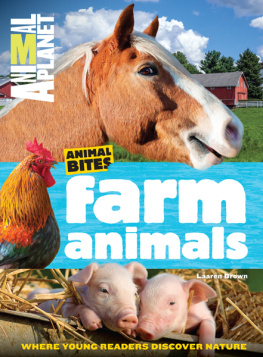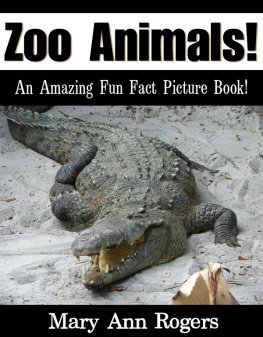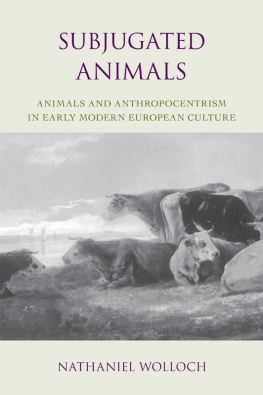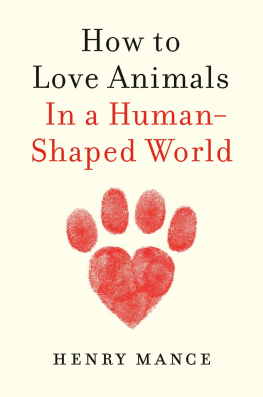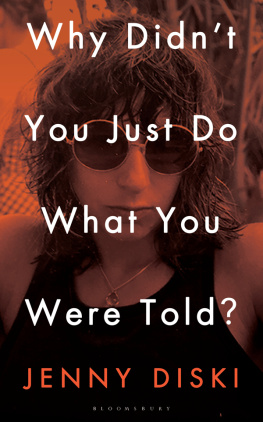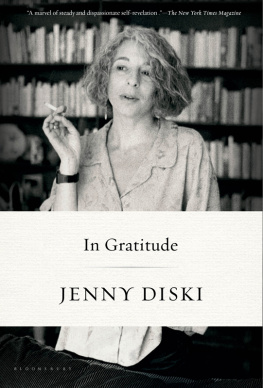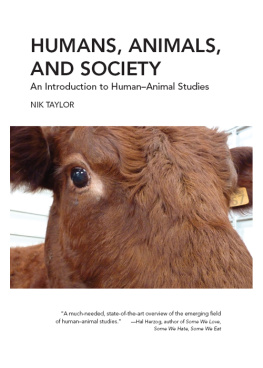WHAT I DONT KNOW ABOUT ANIMALS
Also by Jenny Diski
NOVELS
Nothing Natural
Rainforest
Like Mother
Then Again
Happily Ever After
Monkeys Uncle
The Dream Mistress
Only Human
After These Things
Apology for the Woman Writing
SHORT STORIES
The Vanishing Princess
MEMOIR/TRAVEL
Skating to Antarctica
Stranger on a Train
On Trying to Keep Still
ESSAYS
Dont
The View From the Bed
WHAT I DONT KNOW ABOUT ANIMALS
JENNY DISKI

First published in the United States in 2011 by Yale University Press.
First published in Great Britain in 2010 by Virago Press.
Copyright 2010 by Jenny Diski.
All rights reserved.
This book may not be reproduced, in whole or in part, including illustrations, in any form (beyond that copying permitted by Sections 107 and 108 of the U.S. Copyright Law and except by reviewers for the public press), without written permission from the publishers.
Yale University Press books may be purchased in quantity for educational, business, or promotional use. For information, please e-mail sales.press@yale.edu (U.S. office) or sales@yaleup.co.uk (U.K. office).
Printed in the United States of America
Library of Congress Control Number: 2011928606
ISBN 978-0-300-17684-1 (hardcover: alk. paper)
A catalogue record for this book is available from the British Library.
This paper meets the requirements of ANSI/NISO Z39.48-1992
(Permanence of Paper).
10 9 8 7 6 5 4 3 2 1
To Chloe and Oliver with love
CONTENTS
PART ONE
IN THE BEGINNING
Here is Edward Bear, coming downstairs now, bump, bump, bump, bump, on the back of his head, behind Christopher Robin. It is, as far as he knows, the only way of coming downstairs, but sometimes he feels that there really is another way, if only he could stop bumping for a moment and think of it. And then he feels that perhaps there isnt. Anyhow, here he is at the bottom, and ready to be introduced to you. Winnie-the-Pooh.
When I first heard his name, I said, just as you are going to say, But I thought he was a boy?
So did I, said Christopher Robin.
Then you cant call him Winnie?
I dont.
But you said
Hes Winnie-ther-Pooh. Dont you know what ther means?
Winnie-the-Pooh, A. A. Milne
1
THE REAL AND THE STUFFED
I was born in the mid-twentieth century in the dead centre of a great city. I am what one historian calls post-domestic. My grandparents came to England from the shtetl: they had been traders, furriers, tailors, not animal husbandmen, but at some point they must have ridden horses, or used them to pull carts. They would have kept chickens and killed them under the watchful eye of the rabbi. My mother, although born in London in 1912, knew how to singe and dress chickens that came, head and feet on, all the insides inside, from the kosher butcher behind Warren Street underground station. Even so, like many children of immigrants my parents put the shtetl behind them as much as possible. Their broken-accented old people were old-world embarrassments, for all that they had made the bold journey from a hostile middle Europe to unknown and faraway city centres.
Neat, clean clothes confirmed how far we had come from the old country. My mother did not mess with dirtying nature, except in the kitchen to prepare it to look other than what it had been by chopping and cooking. My mother and father both fled from the ghost of the shtetl into the urbane. When I was young we lived in a centrally heated block of flats. A man way down in the basement stoked the boiler; another man came every week and took the dirty sheets and brought them back washed and ironed. My mother spent her days dusting and polishing and cleaning, but our flat was so small, I cant imagine how it occupied her for more than half an hour a day. She washed herself and me as if we spent our lives excavating dark and grimy tunnels. Especially down there, in the animal the natural the private parts. She flung a handful of washing-soda crystals into my bath to get rid of any germs that lurked on my body. Not that it had much opportunity to get dirty clean knickers every morning and careful lessons in how to wipe yourself after urinating or defecating. My mother was prepared to confront the dirty animal, but only to ensure that it never, ever got a hold on our existence. My father shaved with a strap-sharpened razor, left a manicured garden of moustache on his upper lip, forced his wavy hair flat on his head with a hair cream and vigorous brushing and splashed more scented stuff on him to keep the smell of body at bay. But according to my mother, he was not as fastidious as she was in the matter of washing or in matters of other peoples natural parts. My mother abhorred his washing and sexual behaviours as filthy. Good things were nice, bad things were not nice. Clean was nice and clean. Good was not making a mess of the clothes that were specifically chosen to show how much we were not people of the countryside. When I wailed miserably about my woollen vests, which I insisted were scratchy, she told me they couldnt possibly be, they were made of the finest wool to be bought in Brussels. Shops in cities, not sheep in fields, ensured their goodness and quality. Post-domestic.
Any dogs, cats or birds I encountered on the streets were always to be ignored and avoided. But there were exceptions. The great masses of starlings in central London at that time were a sight to see, worth stopping and looking up at, swarming in their tens of thousands on the roof of the National Gallery in the late afternoons, and taking off simultaneously in a fluttering, shrieking cloud that swooped and rose all of a piece across the London sky. And in Trafalgar Square, I regularly fed the pigeons that stood ravenously on my hands, shoulders and head to get at the corn on my open palm. A strange anomaly of urban animal wariness. Now pigeons are flying rats, filthy and disease-ridden. They have been exiled from Trafalgar Square, and are shot in the dead of night to discourage their presence on public buildings and under bridges. The millions of starlings have disappeared too. But I have a photograph of my mother and me, standing at the foot of Nelsons Column, with pigeons perched on our heads and shoulders, and my mother smiling quite benignly.
I went with her to the butcher and sat in my pushchair, close to the pale sawdust, looking at slabs of meat on the counter, tidied with string into unfleshy shapes that bore no relation to anything that had ever lived. It was the shop where they neatened death into food. And it was a kosher butcher, which meant, additionally, that the meat had been drained of its life blood and prayed over as it was killed. By the time it got to the front of the shop, it had been processed as far away from the once-living creature it had been as it was possible. And the processing continued back home in the kitchen. Salt beef was an oval cylinder bound with string; fish was filleted and covered in matzomeal batter or moulded with carrots and simmered into wet, doughy balls; liver was chopped and mixed with egg and onion into a pt. Only chickens remained somewhat lifelike. At the butcher, they were whole, though dead and featherless, hanging by the neck from hooks in the window. A little bit of bucolic reality. They even retained their shape and features in the cooking, after my mother had burned away the last bits of feather. Chicken soup essential Jewish food was made with the whole unjointed chicken, minus the head, but including the giblets (gizzard, liver, heart, neck), any unlaid eggs (a special treat, little hard-boiled yolklets), and the amputated feet. Actually it was as much Chinese as Jewish, but gnawing on a chickens claw, all succulent and chewy gristle and bone, and being presented with the rubbery gizzard, was a weekly childhood happiness. So all my experience of the non-human animal was the smell in the butchers shop, various mediated parts of a cooked chicken, close encounters with disease-ridden flying pests and an appreciation of starlings.
Next page


